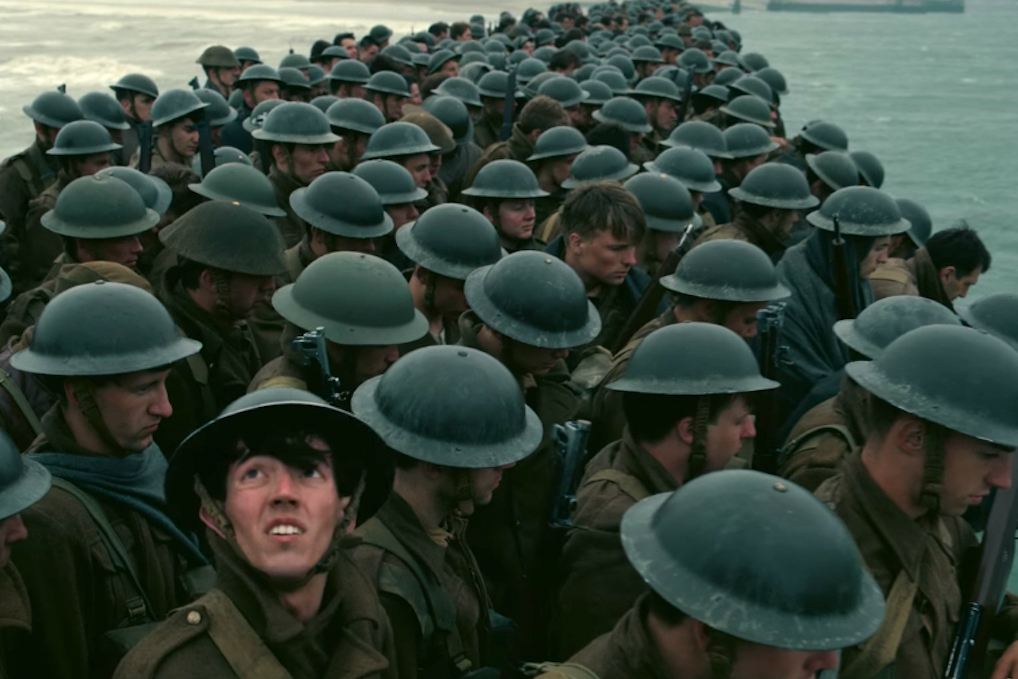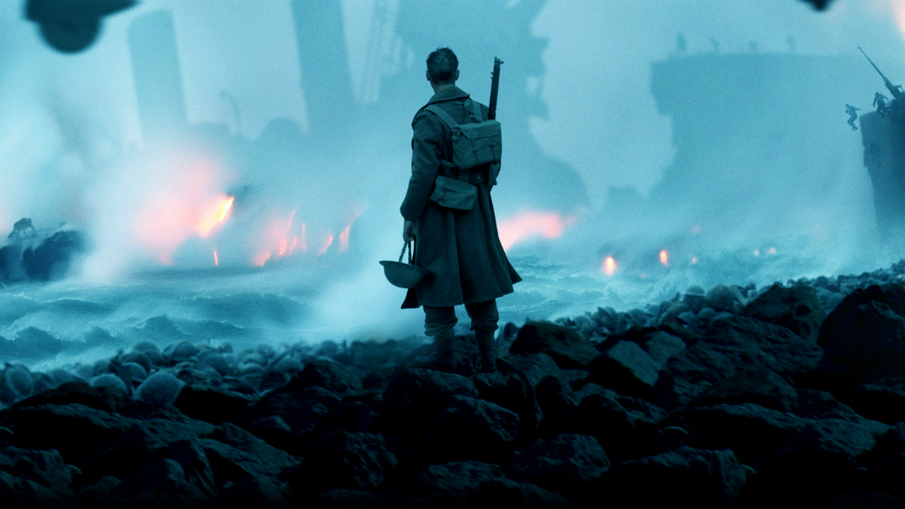Centering on the 1940 evacuation of Dunkirk during World War II, the film serves as a harrowing reenactment that places you right in the middle of the action. We follow three storylines, including a group of young soldiers struggling to survive, a boat captain looking to save as many lives as he can, and a fighter pilot providing support from the sky. While the film focuses on a select group of characters, we do not get an intimate look at their backstories. There’s no earnest soldier with a pregnant wife back home, or brutal sergeant whose arrogance does him in, or skiddish young kid who turns into an unexpected hero. At its heart, Dunkirk is about everyone having a common goal: survival. There’s no opportunity for downtime or predictable flashbacks, it’s just about getting one step closer to safety, to home.
Where Dunkirk lacks in character development it more than makes up for in spectacle. The cinematography by Hoyte van Hoytema is gorgeous, sweeping over land and sea, while the sound design of the gunshots and destruction is uncomfortably realistic. Seeing the film in IMAX, I felt like I was in the midst of this never-ending, chaotic battle, with guns firing all around me. The film is PG-13 which means there are not many shots of blood and gore, but the psychological effect is very present.

This is a very different kind of film from Nolan, whose past filmography includes sci-fi/comic book genre films like The Dark Knight trilogy, Inception and Interstellar and mind-bending thrillers like Memento and The Prestige. Classic Nolan tropes like dead wives, identity crises or shocking twist endings are not present in Dunkirk. In many ways the film is a classic World War II epic, though the intercutting storylines converging into one certainly gives it a Nolan touch.
Subverting (and surpassing) expectations is often rewarded in Hollywood, and it’s looking more and more like Nolan will have this narrative heading into award season. Many Oscars have been given out to actresses in “deglammed” roles, including Charlize Theron for Monster, Nicole Kidman in The Hours and Renée Zellweger in Cold Mountain. Grizzled older actors with less than stellar reputations have received nominations for exposing their vulnerable sides, like Mickey Rourke in The Wrestler and Sylvester Stallone in Creed. Conversely, Tom Hanks has delivered many great performances over the past decade but has not received a nomination. That may be because characters like Capt. Sully Sullenberger, Richard Phillips and Walt Disney are the kind of “American hero” roles we’ve come to expect from Hanks.
Not only is Dunkirk a surprising departure for Nolan, it’s also in a genre very friendly to Oscar voters. World War II is a very popular area for voters, as we’ve seen from the success of films like Patton, Schindler’s List, Saving Private Ryan, and The Pianist. Another factor in Dunkirk‘s favor is the recent trend of big budget blockbusters from auteur directors performing extremely well in nominations and wins. Movies like Ang Lee’s Life of Pi, Alfonso Cuarón’s Gravity, and George Miller’s Mad Max: Fury Road were the biggest winners of their respective years at the Oscars, (this, despite none of their films winning Best Picture!). It’s easy to see a scenario where Dunkirk wins multiple Oscars and even tops the win total by the end of the night.
Virtual locks for nominations for Dunkirk include Best Cinematography, Best Film Editing, Best Sound Editing, and Best Sound Mixing, with Best Picture, Best Director, Best Original Score, Best Production Design, and Best Visual Effects all very much in play. We could even see Mark Rylance nab an afterglow nomination for Best Supporting Actor for his role as boat captain Mr. Dawson, having previously won the Oscar for 2015’s Bridge of Spies.
There is always a danger in predicting Oscars when there’s still five months to go, but Dunkirk feels like the kind of film that can sustain itself through the race. Debuting in July means it will likely benefit from being the first real contender that many voters see, outside the glut of November/December releases. This worked out for Mad Max: Fury Road (May release) and The Grand Budapest Hotel (March release) in recent years, and Dunkirk is the likeliest benefactor of this trend.
How do you think Dunkirk will perform at the Oscars?

